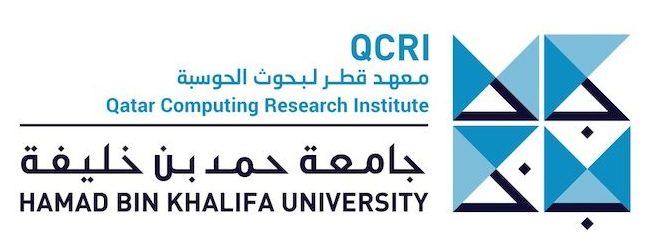By Dr. Ahmed Elmagarmid, Executive Director, Qatar Computing Research Institute (QCRI)
“I propose to consider the question, ‘Can machines think?’ ” and thus begins Alan Turing’s seminal 1950 paper, “Computing Machinery and Intelligence.” The phrase “Artificial Intelligence” was coined six years later by John McCarthy, then a young assistant professor in mathematics at Dartmouth College. It would be another six years before the first computer science department in the United States would be founded at Purdue University.
In my years as a faculty member of Purdue’s computer science department, I have always emphasized that it is vital for our discipline to have the efficient development of algorithms and data structures along with programming languages, and marrying them into applications. AI has been an integral part of the successful impact of computer science for many decades. Perhaps it has reached its glory these days because of successful application of machine learning combined with the potential of further advances in areas such as deep learning, transfer learning and the like that have made AI very powerful. Combining this with Moore’s law-driven powerful advances in computing hardware and infinitely larger and cheaper storage has enabled this current AI-led disruption of industries. It just underscores the fact that efforts to gain useful insights from data through algorithms and applications supported by optimized infrastructure have always been the North Star for the computer science research community.
While the widespread and successful implementation of AI into daily and routine applications has been noted, I am impressed to see how the wider research community, cutting across disciplines, has found a way to integrate AI into their methods. Techniques like convolutional neural networks and decision trees which have been around for decades suddenly seem more powerful and profound. In QCRI we have been heavy users of machine learning and in fact one of our most successful projects is aptly named Artificial Intelligence for Digital Response (AIDR). Having “Qatar Center for Artificial Intelligence (QCAI)” as an umbrella or common interface of all our internal projects related to machine learning and analytics helps us communicate our message externally, approach stakeholders with a clearer voice and also helps in recruiting much-needed talent.
The Qatar Center for Artificial Intelligence (QCAI) is supposed to a) realize the above-mentioned goals for QCRI, b) bridge disparate national efforts in AI under one roof; c) develop a “national strategy for AI” that serves the public and private sectors; and d) bring the nation and the region along this disruptive trend.
Along these lines we are currently exploring with global stakeholders various areas of urgent need where AI can provide solutions and boost productivity: food security, transportation, healthcare and cybersecurity, to start.
In 2010, we started QCRI inspired by Qatar’s aspirations to become a knowledge-based economy by 2030. As a research institute our responsibility is to create new knowledge that is valued by society. We have worked hard since the beginning and are proud of our achievements at QCRI. The launch of QCAI at QCRI is the natural step in that direction.
As the AI race is heating up among the nations of the world we feel that QCRI’s expertise and scientific capacity can best help Qatar take its rightful place in the emerging AI economy. Therefore the launch of Qatar Center for Artificial Intelligence (QCAI) is quite timely and the right next step for us. QCRI’s aspirations for QCAI is for it to become a center of excellence within Qatar and lead research efforts to capitalize on AI for the benefit of the economy and the society in the country.
We launched QCAI with the talk by our scientific advisory council member, Prof. Michael Woolridge of Oxford University on the topic “AI: What Little We Know.” Now we welcome you all to our next event on Oct 4th 2018 on “Artificial Intelligence and Food Security”. Most of the important stakeholders in Qatar working towards food security will be attending the event and we look forward to the possibilities that emerge from it.
